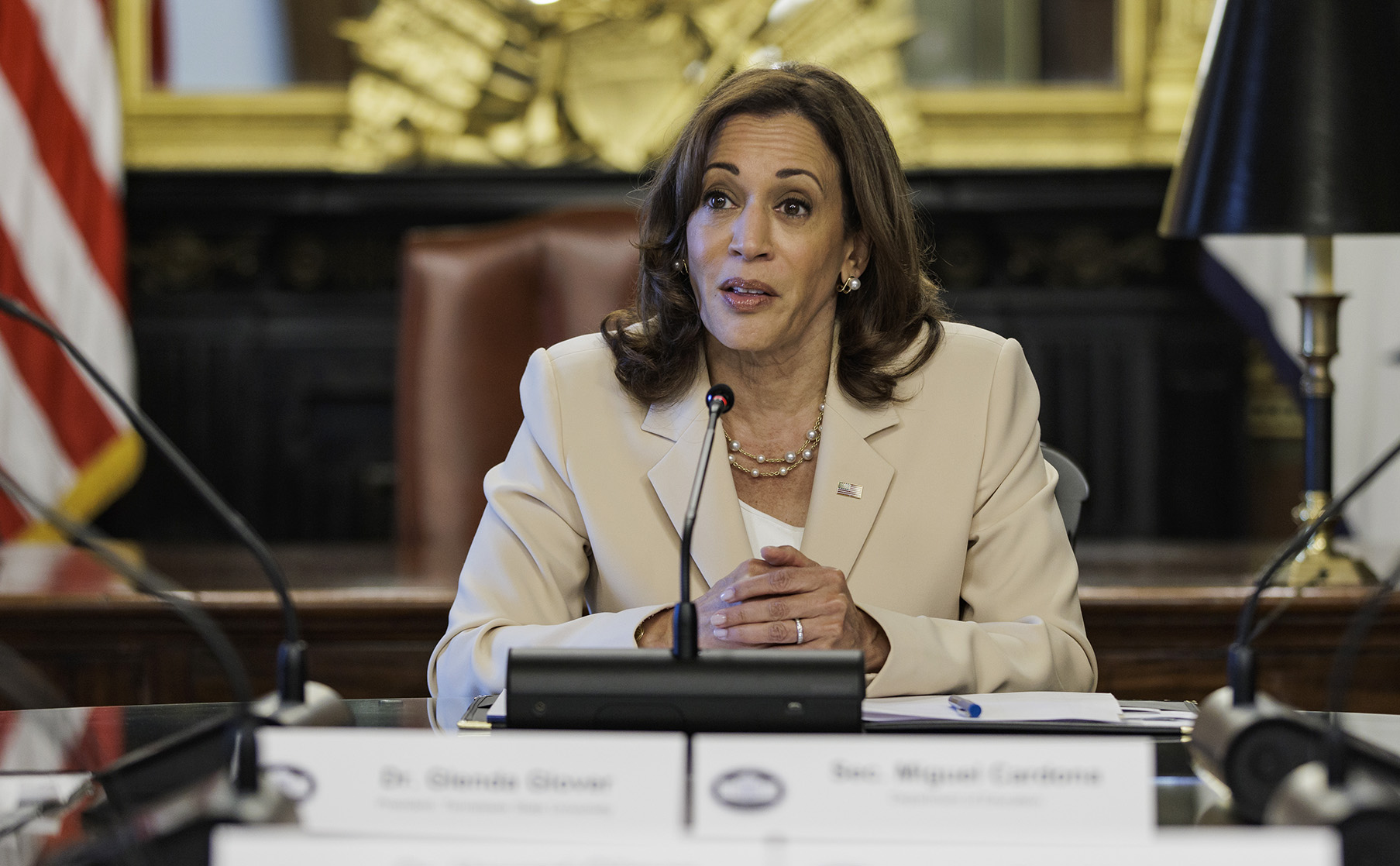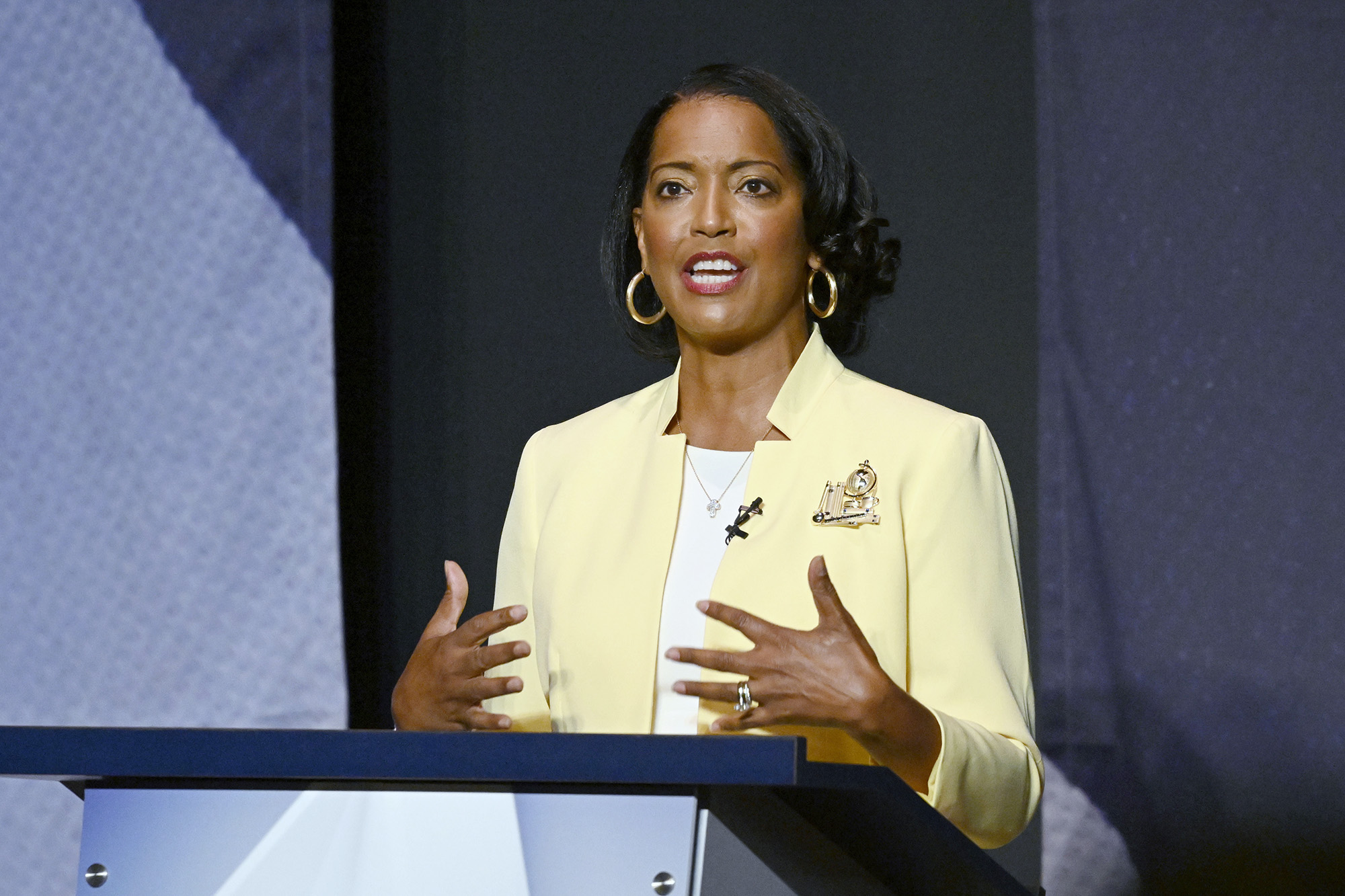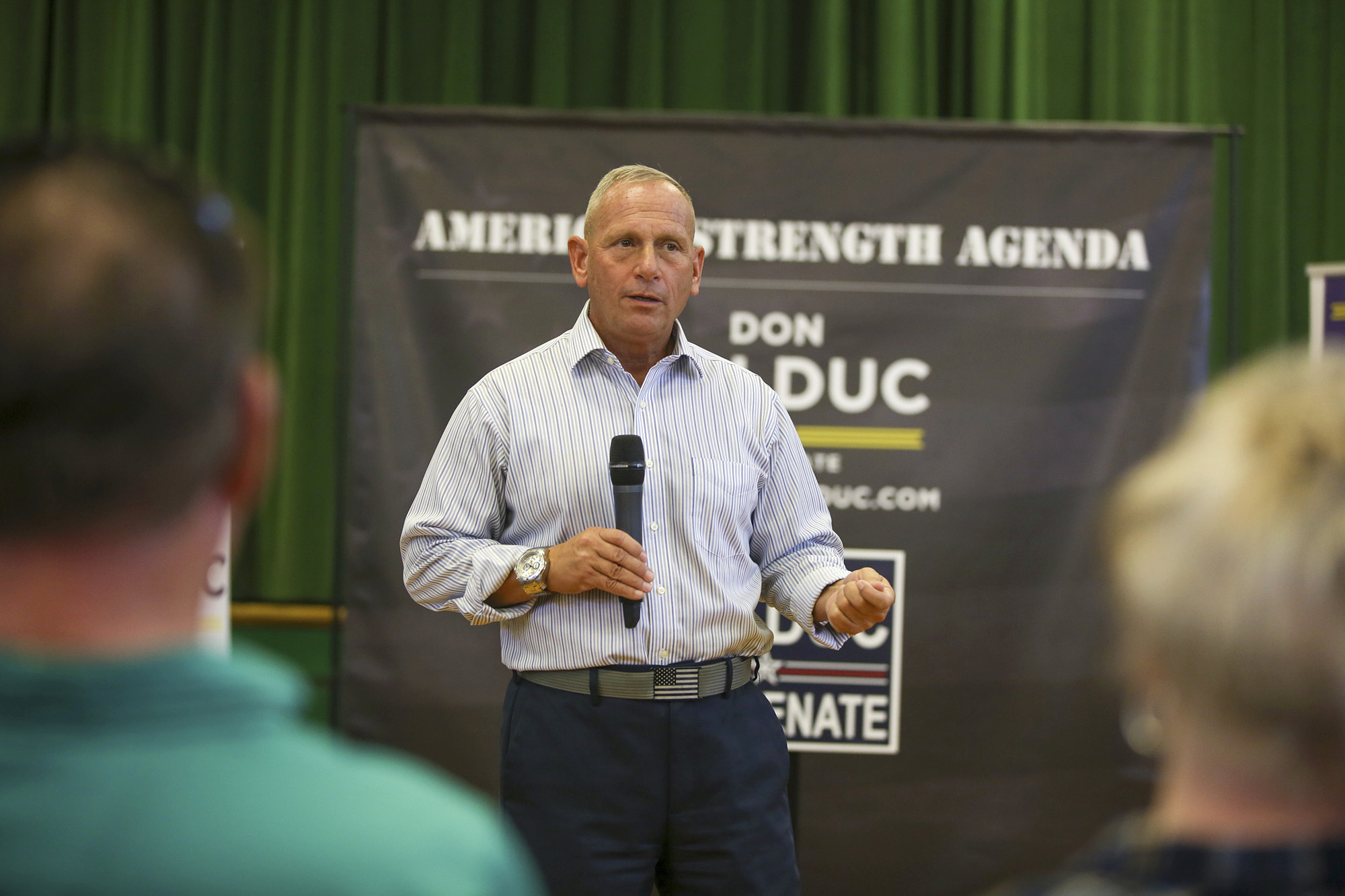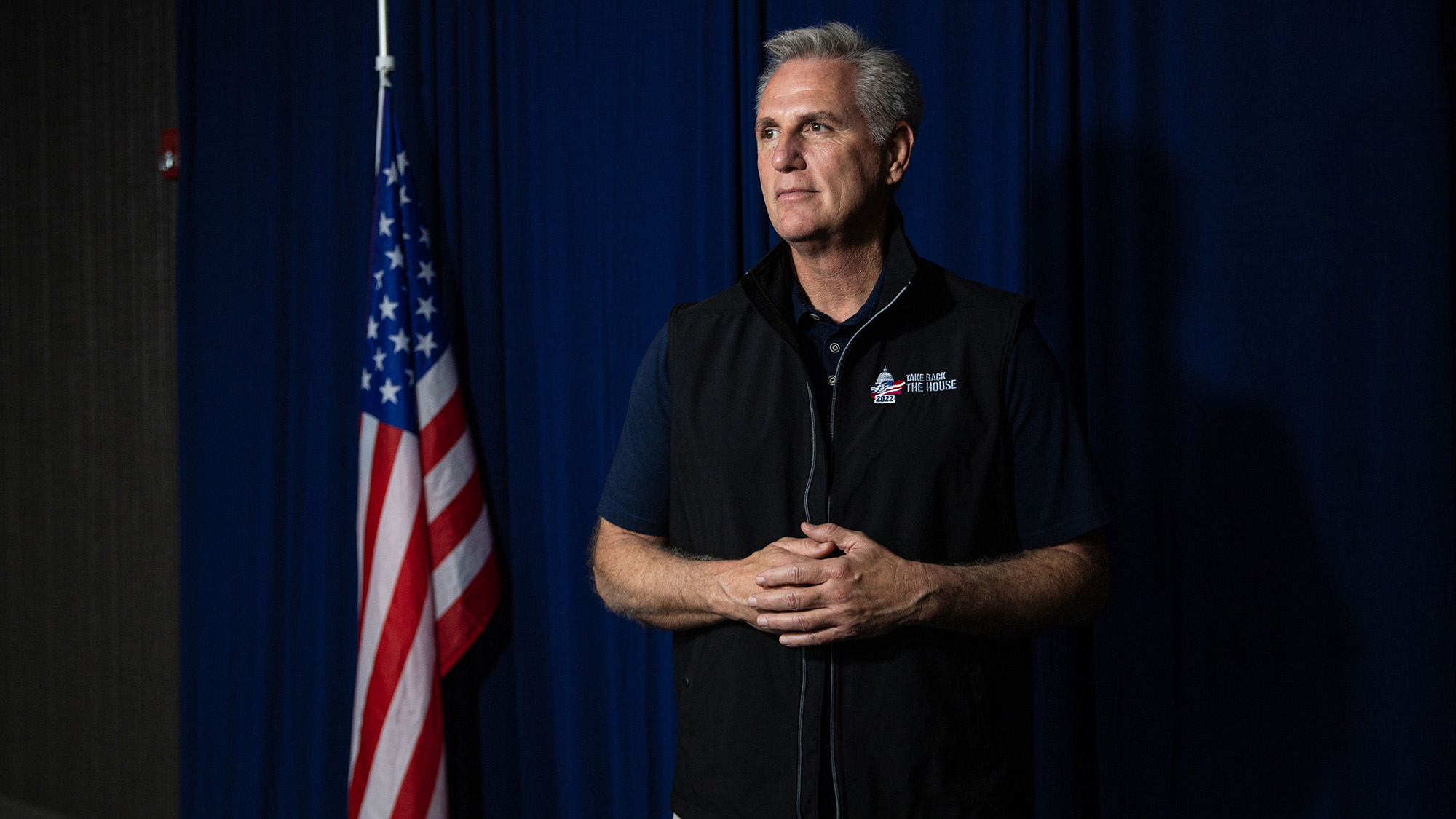
These states have the most pre-election votes cast
New Jersey Democrat facing tough reelection fight says Biden made mistake in visiting Saudi Arabia this summer
From CNN’s Shawna Mizelle

Rep. Tom Malinowski, a Democrat from New Jersey, on Monday expressed criticism of President Joe Biden’s decision to visit Saudi Arabia, saying that he made “a bit of a mistake.”
“One issue I’ve had with President Biden on gas prices, on oil, is that I think he made a bit of a mistake going to Saudi Arabia this summer and trying the nice approach with a so-called ally that actually is trying to deliberately hurt the United States right now,” Malinowski, who is in a tight race for reelection to represent New Jersey’s 7th District, said during an interview on “CNN This Morning.”
The New Jersey congressman’s comments came when asked what he would do differently than the Biden administration to address inflation if he is reelected.
“I think we, and he, learned a lesson when Saudi Arabia acted to raise gas prices to help Russia, to hurt us, a couple of months ago I had legislation in the House to require withdrawing our troops from Saudi Arabia as a consequence of that decision,” Malinowski said.
What we learned from voters after traveling to 5 pivotal states ahead of the 2022 midterms
From CNN’s Dana Bash and Abbie Sharpe

Sometimes you hit the campaign trail and there is an issue voters care so much about, that its dominance is inescapable. In 2006, it was growing opposition to the Iraq war. In 2010, it was the backlash against big government spending and bailouts coupled with fear about what Obamacare would look like. This year, it is deep concern about affordability.
That is not to say that other issues, from abortion to crime to the climate and beyond, don’t matter a lot to voters – but anxiety about the high cost of the basics is palpable.
We learned that after traveling to five pivotal states since Labor Day weekend: Michigan, Ohio, Virginia, Nevada and Arizona. We covered competitive races and talked to scores of voters in diners, gas stations, grocery store parking lots, construction sites, outdoor markets and more.
“I drive a truck and it does not get very good gas mileage. I actually had to quit my last job because I couldn’t afford to drive all the way out there,” Amanda Cleaver told us at the Michigan State Fair on Labor Day weekend.
Greg Steyer, as he sat with a group of friends at Bud’s Restaurant in Defiance, Ohio, expressed his exasperation as well.
“Why is the price of gas where it is today?” Steyer asked the second week of September.
“You can’t just overlook that issue,” he added.
As Joseph San Clemente put his groceries in his car in a Virginia Beach parking lot in late September, he couldn’t get over the prices of what he had just purchased.
“Vegetables have gone up 20 to 30%,” he said. “Growers locally in the farms are not carrying things they did last year because people don’t have the money.”
Dave Dent, who manages a construction company in Tucson, Arizona, said in late October that inflation in his line of work is as high as 30%.
And Maria Melgoza, who cleans homes in Las Vegas, told us how hard it is to make ends meet these days.
“Food is high, gas is high, rent is high,” she said, speaking in Spanish.
We heard from many frustrated voters – especially those among the working class and in rural areas – who feel forgotten by politicians in Washington.
“I came up in a union household. My dad was a teamster for 30 years, voted Democrat. But they’re completely out of touch with what everyday Americans want,” lamented Jason Fetke in Virginia Beach.
A current union member we met in Toledo, Ohio, says he is voting for Democrats this year, but still feels like neither party is doing enough.
“I think there should be a lot more focus on working class people,” said Joe Stallbaum.
“It just seems like we always get left behind for either the high or the low,” he added.
Keep reading here.
There are a number of measures on the ballot related to health care and finances. Here’s what you need to know
From CNN’s Tami Luhby
Among the numerous initiatives on the ballot Tuesday are a host of measures related to health care and finances. Here’s a sampling of those ballot measures:
Expanding Medicaid in South Dakota: Currently, childless adults are not eligible for Medicaid in South Dakota, and parents must have very low incomes to qualify — about $1,000 a month for a family of four. By expanding Medicaid, South Dakota will receive an additional $328 million in federal funds the first year and generate 4,000 new jobs, according to Zach Marcus, campaign manager for South Dakotans Decide Healthcare, which is advocating for the ballot measure. The state’s Legislative Research Council found last year that expansion would save South Dakota $162.5 million over five years. Many Republican officials oppose the measure, citing its potential future costs. States are responsible for picking up 10% of the health care tab of the expansion enrollees.
Raising the minimum wage in Nebraska and Nevada: Nebraska voters will decide whether to raise the state’s minimum wage to $15 an hour by 2026, up from the current $9 an hour.
In Nevada, voters will have their say on a state constitutional amendment to increase the minimum wage to $12 an hour by 2024. The measure would also remove an existing provision setting different rates for the minimum wage based on whether the employer offers certain health benefits. Currently, the state minimum wage is set to rise to $12 an hour for workers who don’t receive certain health benefits and $11 an hour for those who do in 2024.
Increasing taxes on the rich in California and Massachusetts: California’s Proposition 30 would add a surtax of 1.75% on people making more than $2 million a year. This is on top of the state’s highest income tax rate of 12.3%. It would raise an estimated $3.5 billion to $5 billion. Most of the funds would go to promote zero-emission vehicles and wildfire prevention and control.
The Massachusetts ballot measure, meanwhile, would impose a 4% surtax on those who earn more than $1 million. That’s on top of the state’s existing 5% income tax rate. It would raise about $1.3 billion in 2023 and affect about 0.6% of state residents, according to a Tufts University estimate. The money from Question 1 would go to fund education, roads, bridges and public transit.
Adding medical debt measures in Arizona: Voters will decide whether to change some rules governing medical debt owed by residents. Proposition 209 would cap the interest rate on medical debt at 3% and limit wage garnishment for medical debt to a maximum of 30% of earnings. It would also increase the value of primary residences and cars that would be protected from medical debt collectors to $400,000 and $15,000, respectively, up from $250,000 and $6,000, said Rodd McLeod, spokesperson for Healthcare Rising Arizona, which is supporting the measure that is also backed by The Fairness Project. The bill does not forgive any medical debt, McLeod said.
Democrats have zero room for error in Senate races
From CNN’s Simone Pathe

Even as the odds of House Democrats keeping their majority worsen, the Senate has remained more of a nail-biter. That alone has been encouraging for Democrats.
But in a Senate chamber that’s evenly split, with Vice President Kamala Harris holding the tie-breaking vote, Democrats have zero room for error as they look to prevent the GOP from gaining a two-chamber congressional majority and launching even more of the kinds of investigations that Republicans have already pledged to open if they win the House.
Republicans need a net gain of just one seat to win the Senate majority – with Nevada, Georgia, Arizona and New Hampshire among their key pickup opportunities. All of those races have tightened in their favor since the summer, including New Hampshire, which had appeared out of the GOP’s reach when the party nominated a more extreme candidate who had raised just a fraction of Democratic Sen. Maggie Hassan’s millions.
What the GOP needs: For Republicans to pick up seats, though, they need to defend their own, including two in states Donald Trump won in 2020 but that have required more GOP spending than Republicans would have liked.
While Republicans pummel Democrats over inflation and crime, Democrats’ strategy has been to try to paint contrasts between their candidates and the GOP – over issues of both character and policy, such as their late campaign charge that Republicans would endanger Social Security and Medicare.
Senate races can defy the national environment. House races – in which candidates are much less defined – tend to blow with the national winds. The 2018 blue wave, for example – when Democrats made significant gains in the House in response to Trump’s presidency – didn’t translate to the Senate. Republicans were able to pick up seats that year by knocking off some Democrats in red states.
But the question this year is whether the idiosyncrasies of Senate races can outweigh voters’ dismal perceptions of the economy and the desire to check the party in power in the White House. Nearly three-quarters of voters in a recent CNN/SSRS survey said things in the country were going in the wrong direction, with about the same percentage believing the US is already in a recession.
Analysis: We’re one day out from Election Day. These are the scenarios that could play out tomorrow night.
Analysis by Harry Enten
In Tuesday’s midterm elections, Democrats are hoping to hold on to power, while Republicans yearn to gain control of both the House and the Senate. And while we all have guesses of what will happen, the truth is that we don’t know what will play out.
With that uncertainty in mind, here are three different scenarios that could be key to how the battle for control shakes out.
Georgia runoff determines Senate: If you follow politics to any degree, you certainly have. Unlike other states with close Senate races, Georgia requires candidates to receive a majority of the vote to win on Election Day. If no candidate does, then a runoff between the top two candidates is held in December.
The conditions are fairly ripe for such a scenario. Neither Democratic Sen. Raphael Warnock nor Republican Herschel Walker is at 50% in the Georgia Senate polls. Libertarian Chase Oliver is pulling in 3% to 4%.
If every other race goes exactly as the polls predict, Democrats will have 49 seats, not including Georgia. Republicans will have 50 seats. This means that whichever side wins in Georgia would control the Senate.
The Senate actually gets projected early: Then there’s the other side of the spectrum. Most people are anticipating that we won’t know who wins the Senate until days, if not weeks, after Election Day. That may be the case, but it’s far from a certainty.
There are a few ways we could conceivably get a fairly fast call. The easiest way for it to happen is if the Republicans win both Georgia (with a majority to avoid a runoff) and Pennsylvania. That way, we’re probably not reliant on what could be longer counts in Arizona and Nevada.
Another way this might happen is if there is a surprising result in the east. If Republicans have a very good night, they could win the New Hampshire Senate race, where Democratic Sen. Maggie Hassan is running for reelection against Republican Don Bolduc. If Democrats have a very good night, they could win the Ohio Senate race, an open seat where Democratic Rep. Tim Ryan is facing off with Trump-endorsed J.D. Vance.
An early call of the House: Just weeks ago, the race for both the House and Senate looked close. While the Senate still does, it’s easy to see how the House could turn into a relative blowout.
If that happens, we won’t have to wait for the West Coast. We won’t have to wait for the results from ranked-choice voting races.
Instead, we’ll get a pretty good idea from even the earliest of poll closings. Consider a race like that for Virginia’s 2nd District, a swing district centered in Virginia Beach. Rep. Elaine Luria would likely win if Democrats are to be competitive in the House. If she’s defeated, Republicans are probably on their way to House control.
If it’s a big Republican night, we could also see Democratic Rep. Frank Mrvan go down in Indiana. Indiana, unlike a lot of other states, requires voters to have an excuse to vote absentee. The bottom line is that if Republicans end up with close to 240 seats (as they did in 2010), then the race for House control won’t be drawn out.
Read more potential Election Day scenarios here.
Watch: Republican elections official answers voting questions from skeptics
From CNN staff
Misinformation about voting has grown rampant in the last two years and confidence in elections has fallen.
CNN asked an official in the key swing state of Arizona to respond directly to questions from supporters of Republican gubernatorial candidate Kari Lake.
That elections official is a Republican: Maricopa County Board of Supervisors Chairman Bill Gates. He addressed the verification process for mail ballots, the screening measures for election workers, the accuracy of vote-counting machines and more.
Twitter could be a wild card for the midterms
From CNN’s Brian Fung

For years, Twitter has been a leader in countering misinformation and protecting elections. It was often ahead of its peers in creating and enforcing new policies, and it was the first major platform to ban former President Donald Trump after the Capitol insurrection, pushing others to follow suit.
But concerns are growing that tumult inside Twitter in the first week after it was acquired by Elon Musk could weaken its safeguards for elections, just before the midterms are set to take place.
Musk’s Twitter laid off thousands of employees across the company last week, including cuts to its public policy and trust and safety teams, and extensive cuts to its curation team, which helps elevate reliable information on the platform about elections and other news events. The chaos was only amplified over the weekend as Twitter first appeared to roll out, and then postponed, a controversial plan allowing any user to pay to be verified — a proposal critics had said would cause confusion during the midterms about which accounts and tweets users could trust.
The threats Twitter could face on Election Day and its aftermath include known risks, such as misleading claims of election fraud, attempts at voter intimidation or violent rhetoric, Barrett said. But the disarray at Twitter also means the company will be even less equipped to identify and counter novel manipulation tactics for which there is no playbook, he added.
Twitter has said it’s still committed to protecting elections and that the job cuts last week — which struck half of the company’s workforce — were less extensive in its trust and safety team, where about 15% of workers were let go. But the company has been largely opaque about how exactly the layoffs may hinder Twitter’s ability to combat misinformation.
CNN’s Clare Duffy and Donie O’Sullivan contributed to this report.
Analysis: These races will reveal what kind of election 2022 will be
Analysis by Chris Cillizza
With all 435 House races, 35 Senate races and 36 governors’ races on ballots across the country, it’s hard to know where to look on Election Day to get a sense of just what kind of night it is going to be.
Below are my picks for races worth watching – not just for their outcomes, but for what they can tell us about the national playing field. The races are listed alphabetically.
* Connecticut’s 5th District: Connecticut is not a battleground state, but this race has become indicative of the struggles some Democratic incumbents are having in New England. Rep. Jahana Hayes has held the western Connecticut seat since 2018 and was reelected in 2020 with 55% of the vote as Joe Biden was carrying the district in the presidential race with roughly the same vote share. Republicans, however, have been bullish for a while about their nominee, George Logan. The former state senator is vying to become the first Republican to represent the district in about 16 years. Inside Elections rates the race a Toss-up. If Republicans win here, it is likely a sign that they are cruising to the majority nationwide.

* Michigan Governor: Michigan has been one of the top swing states in the country over the past two national elections, but Democratic Gov. Gretchen Whitmer looks like a favorite here in her race against Republican Tudor Dixon, who won a contested primary fight thanks to the endorsement of former President Donald Trump. Dixon has struggled to stay financially competitive with Whitmer since winning the nomination. Polls suggest this race is Whitmer’s to lose, but keep an eye on the margin. If she wins by low single-digits, it would suggest an overperformance by Dixon that could affect races down-ballot.
* New Hampshire Senate: After retired Army Brig. Gen. Don Bolduc became the Republican nominee earlier this fall, it appeared as though national GOP groups were giving up on the race. The super PAC affiliated with Senate Minority Leader Mitch McConnell pulled out more than $5 million in planned advertising in the state, and it appeared as though Democratic Sen. Maggie Hassan was on her way to victory. But the National Republican Senatorial Committee jumped back into the race and Democrats’ Senate Majority PAC added money to its ad reservation over the final week of the campaign, suggesting that this is a closer contest than expected. If Bolduc manages to win, you can be almost certain that Republicans will regain the majority in the Senate.

* New York 17th’s District: This is where Rep. Sean Patrick Maloney, who also happens to be the chair of House Democrats’ campaign arm, is running for reelection. The early spending in the race by Republicans seemed to be nothing more than a troll move designed to annoy and distract Maloney from other races around the country. Then, like so many races in the Northeast of late, it turned competitive. GOP state Assemblyman Mike Lawler has stayed within striking distance. Inside Elections recently moved its rating of this race to Toss-up, a sign that the momentum is with Republicans. If Lawler is able to pull off the upset, it will be doubly sweet for his party – they will pick up a seat no one expected and take out a member of Democratic leadership in the process.
Here are more races to watch for.
Exclusive: House GOP leader Kevin McCarthy previews Republicans’ plans for the majority
From CNN’s Melanie Zanona and Kristin Wilson

House GOP leader Kevin McCarthy is vowing to secure the border, cut back on government spending and launch rigorous investigations into the Biden administration if Republicans win the House on Tuesday, reflecting a mix of priorities as McCarthy will be forced to contend with an increasingly hardline and pro-Trump conference that is itching to impeach President Joe Biden.
In an exclusive, wide-ranging interview with CNN, two days before the midterm elections, McCarthy outlined his plans for power, which includes tackling inflation, rising crime and border security —three issues that have become central to Republicans’ closing pitch to voters. To hammer home that message, McCarthy —who has been barnstorming the country in the run-up to the midterms – rallied here on Sunday for a trio of Hispanic GOP women who are vying to represent key districts along the southern border, a key part of the party’s strategy for winning the majority.
“The first thing you’ll see is a bill to control the border first,” McCarthy told CNN, when asked for specifics about his party’s immigration plans. “You’ve got to get control over the border. You’ve had almost 2 million people just this year alone coming across.”
The Biden administration continues to rely on a Trump-era pandemic emergency rule, known as Title 42, that allows border authorities to turn migrants away at the US-Mexico border. In fiscal year 2022, amid mass migration in the Western hemisphere, US border encounters topped 2 million, according to US Customs and Border Protection data. Of those, more than 1 million were turned away under Title 42.
But McCarthy also highlighted oversight and investigations as a key priority for a GOP-led House, listing potential probes into the chaotic Afghanistan pullout, the origins of the Covid-19 pandemic and how the administration has dealt with parents and school board meetings. And he left the door open to launching eventual impeachment proceedings, which some of his members have already begun to call for.
“We will never use impeachment for political purposes,” McCarthy said. “That doesn’t mean if something rises to the occasion, it would not be used at any other time.”
And with the MAGA-wing calling to cut off funding to Ukraine while the GOP’s defense hawks vow not to abandon the country amid its war with Russia, McCarthy attempted to reaffirm his support for Ukraine while saying they would not automatically rubber stamp any additional requests for aid.
Read the full story here.
Source: https://www.cnn.com/politics/live-news/election-day-coverage-11-07-2022/index.html















